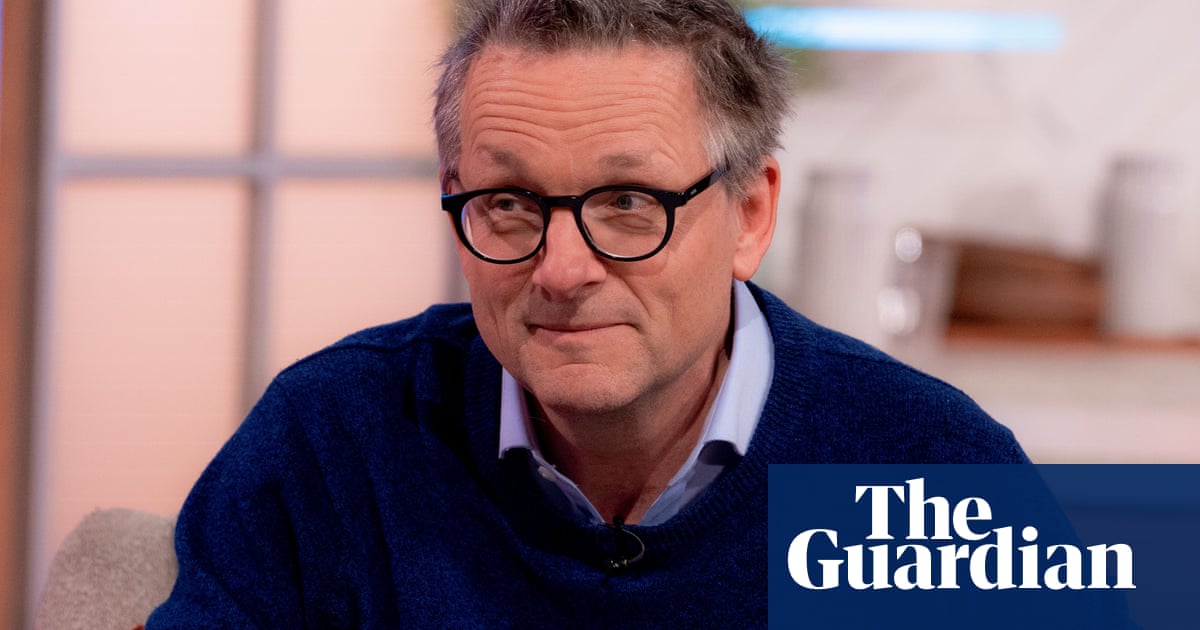Michael Mosley popularised health by turning himself into a guinea pig for self-experiments on TV and radio. He ingested tapeworms for a documentary and then swallowed a camera to examine them wriggling around in his gut. Similarly he tried vaping, magic mushrooms, leeches and snake venom, all in the name of TV science.
After being diagnosed with type 2 diabetes in 2012, Mosley, who had trained as a doctor, cured himself of the condition by intermittent fasting and captured it all on camera.
Mimi Spencer, who co-authored a book with Mosley on diet, said his approach helped simplify difficult subjects. “His methodology was to take complex ideas and make them very much more available and accessible,” she told BBC Radio 4’s World This Weekend. She added: “He used himself as a human guinea pig. He did it because he was fascinated by the science. But he was also really interested in getting a story across to people.”
It worked. Fast Diet, the book he co-authored with Spencer, sold 1.4m copies. His current book, Four Weeks to Better Sleep, is running high in the bestseller charts. And his radio and podcast series Just One Thing on tips for health and wellbeing has had more than 25 million listeners, making it the BBC’s most popular podcast.
Mosley took a circuitous route to writing and broadcasting about health. He was born in Calcutta, India, in 1957 and went on to study PPE at Oxford – his contemporaries there included Theresa May and Damian Green. After university he went into banking but then retrained as a doctor, where he met his future wife, Clare Bailey.
She became a GP but Mosley thought he might be better suited to a career at the BBC. He worked as a producer on science shows including Tomorrow’s World and Horizon. But his real success came after he began appearing in front of the camera.
More recently, Mosley and Bailey have collaborated on books about food and have done stage shows together. They have four children.
Prof Andrew Steptoe, the head of behavioural science and health at University College London, who has appeared on some of Mosley’s programmes, said: “He did a fantastic job in popularising health promotion and the prevention of ill health. He was very focused on encouraging people to do things that would increase their wellbeing and reduce their risk of illness before it starts.”
Asked last month about the success of Just One Thing, Mosley told Radio Wales: “It has just completely astonished me how popular it is. But I genuinely love having the opportunity to chat to the experts and try things out. And I do try them all out. And some of them stick. Some of them don’t. I still do most of them, but I tend to rotate them.”
The show began during the Covid lockdown when Mosley converted a room in his Buckinghamshire house into a makeshift sound studio by muffling sound with clothes from his wife’s wardrobe. Since then the show has explored more than 90 health tips in 15-minute programmes. Subjects covered include all the latest health fads: green tea, flax seeds, olive oil, skipping, planking and turmeric.
But they have also reflected Mosley’s interest in mental health. There have been episodes on volunteering, reading poetry, playing a musical instrument, being kind and having a laugh.
Asked to pick his favourite Just One Thing tip, Mosley said: “I would probably say slow deep breathing because it has really changed my life. For the last 30 years I’ve really struggled with sleep. I’ve found with deep breathing, within a couple of minutes I’m normally back to sleep again.”
The success of the series led the BBC to commission a TV version, which, before Mosley’s death, was due to be broadcast in the autumn. Mosley said he had filmed episodes on dancing in Blackpool and on walking with Nordic poles in the Lake District.
Steptoe said: “He considered health in a holistic way – not just talking about actions such as exercise and diet, but also how people’s morale and psychological wellbeing could be supported. In the last long interview I did with him last autumn, we spoke about the crucial role of social relationships and of actively engaging in purposeful activities. He spoke very warmly about his wife and family, and I feel so very sorry for their loss.”
Spencer added: “What has happened is unbearably sad. My heart goes out to Claire and the family. He endlessly told me stories about what his kids were getting up to. They mattered enormously to him and I know they’re going through hell at the moment and my heart is with them today.”

